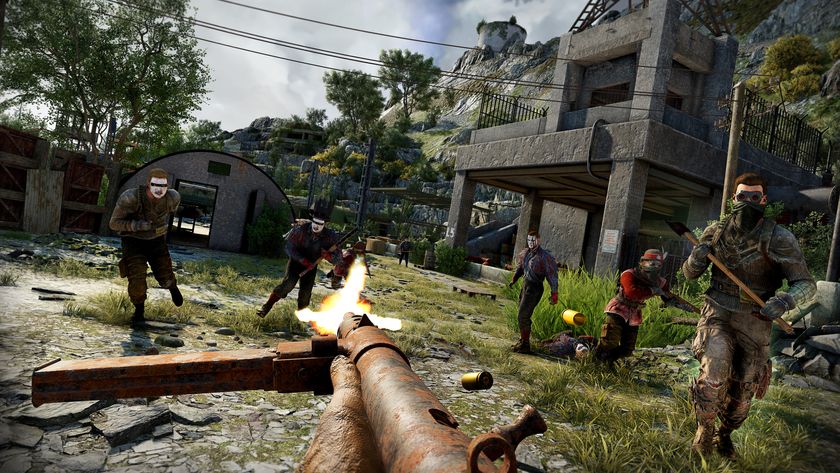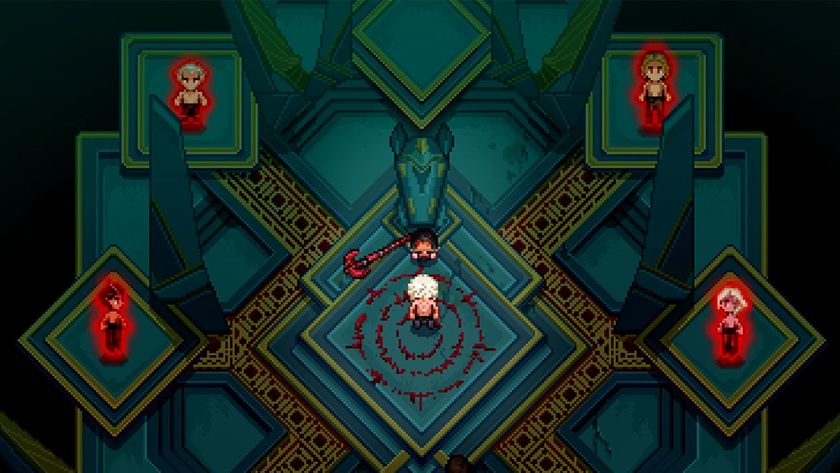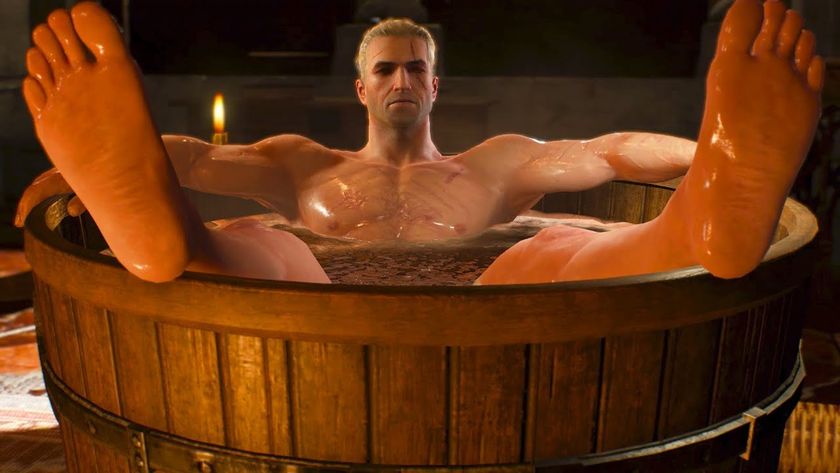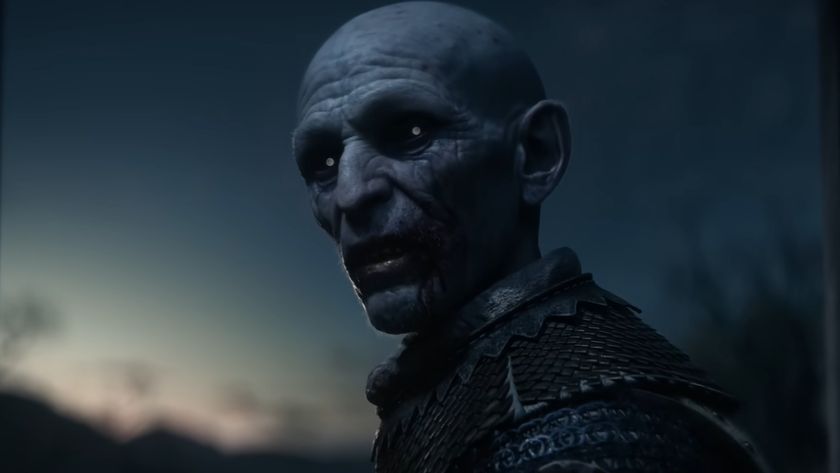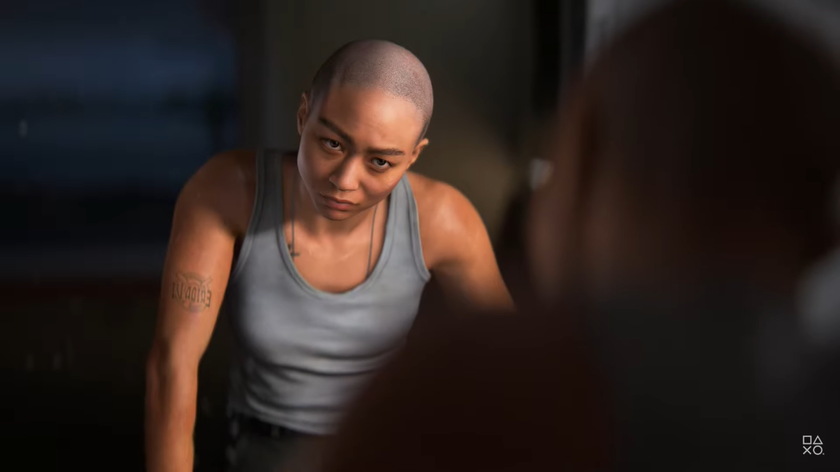Peter Molyneux talks to us about Lionhead's legacy, working with Xbox, and making Milo
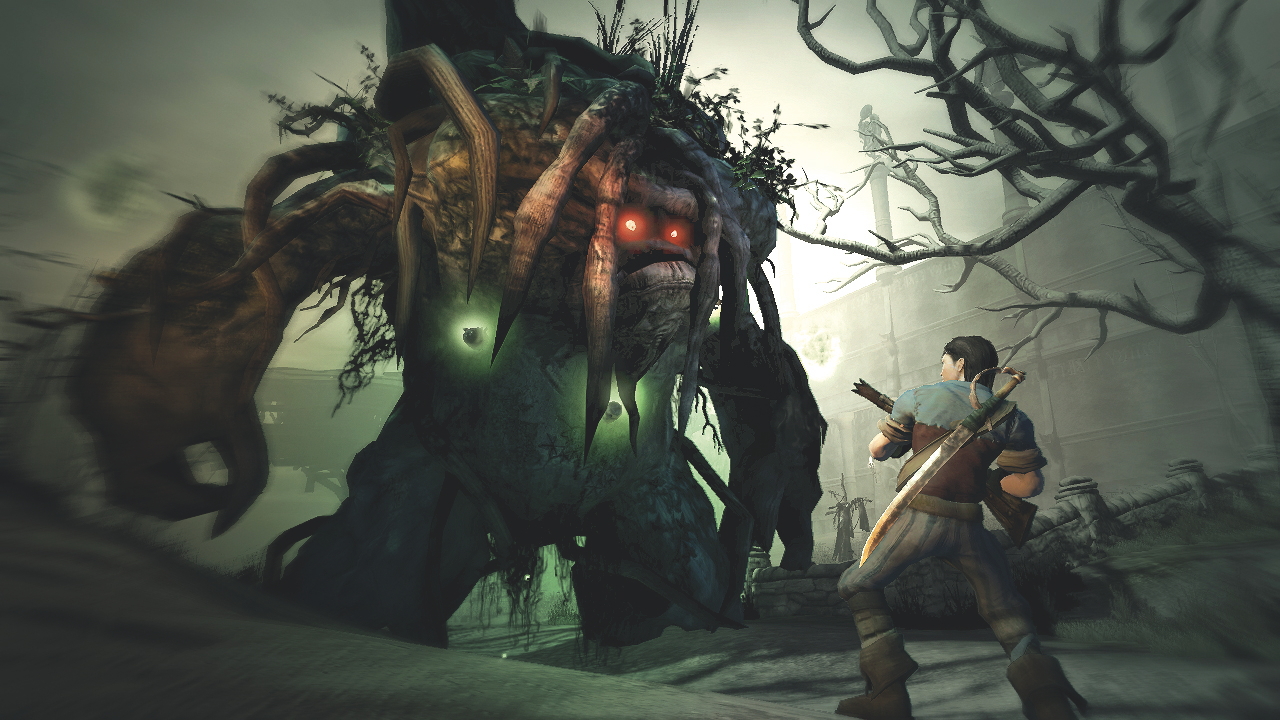
This interview was originally conducted by Xbox: The Official Magazine following the closure of Lionhead studio
Peter Molyneux’s break came in 1989 with Populous, the original god game, before spending most of the 1990s with legendary British studio Bullfrog. He then went on to co-found Lionhead in 1997 and, over the next 16 years, oversaw the studio’s transition from an independent developer to a Microsoft first-party studio, with the development of Xbox gems like Fable and Fable II, and the fascinating-but-cancelled Project Milo for Kinect. Following Lionhead’s closure, OXM sat down with the industry legend to discuss the studio’s legacy.
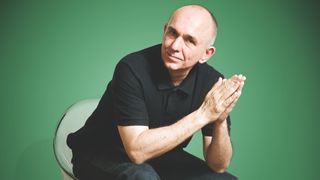
OXM: Hello Peter, are you in a better place? You had a tough time from the press recently, are we still friends?
Peter Molyneux: I’m in a better place. It’s not that at all. I just think the days of me doing press and getting excited about games before they’re done is over. That’s not how the world works anymore. And actually I’ve found that pretty good and rewarding. I do miss talking in the press, I miss meeting journalists at shows and stuff but maybe that’s more out of habit than anything? But I don’t think the press has treated me badly, you know. I had so many years of amazing articles. I can’t complain, times have changed and you’ve got to change with them. There’s no bad blood.
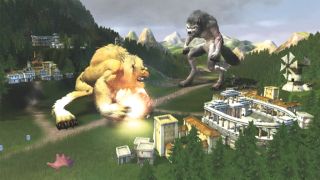
OXM: Going back in time, what do you remember of how Lionhead came about?
PM: Bullfrog was acquired by EA, which was and still is a fabulous company, but I felt as well that when EA acquired Bullfrog there were, like, 35 people and within nine months there were 200 people. And any feeling of culture and inventiveness, which is important when we get to Lionhead’s story, was kind of being diluted. So me and Mark Webley and Steve Jackson and Paul McLaughlin decided to met in a pub, and from there we decided to start up Lionhead. I said I’d fund it, thinking that at that time it would be maybe be a couple of hundred thousand pounds, but actually it was a lot more in the end [editor’s note: Black & White’s development has been estimated at £6 million] and we set out on the journey.
We said to ourselves at the very start that we wanted to be crazily inventive, and we thought of a few game ideas. We finally came up with Black & White and that felt crazily inventive enough. The idea of Black & White was to have this open world, this amazing piece of AI that actually learned from you, this game without icons and stats, keeping the screen very clear. There were a lot of crazy thoughts.
Sign up to the 12DOVE Newsletter
Weekly digests, tales from the communities you love, and more
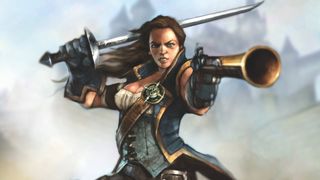
OXM: What size was Lionhead at the start?
PM: I think that initial team was around 30 people, and was just amazing. Everyone there was super passionate, super bright and clever, maybe not in academic terms but certainly bright in terms of what they could do and the effort we all put in. It was an incredible achievement. I still think to this day that if you write Black & White’s design down on paper it seems impossible. It was a fabulous time. We worked incredibly hard, stupidly hard, but it was amazing.
OXM: Fable came out of the satellite studio Big Blue Box, how did that work?
PM: It was a disaster! What it was, was Simon and Dene Carter who, with myself and four others, had finished Dungeon Keeper together. We’d been talking about RPGs and how we’d like to do an RPG and wouldn’t it be wonderful to do an RPG. Steve Jackson said that he had a brilliant idea – rather than having Simon and Dene fund themselves, or we fund them, we’ll set them up as a satellite and all we’ll have to do [laughs] is help them with the publishers and all the admin stuff, and they’ll do some brilliant games for us.
Of course the world never really works like that, y’know, making any game is almost impossible. It’s an almost impossible feat. Making a good game is even closer to impossible. You need absolute focus and you need your most brilliant people on that game. In the end we realised it was no good having Big Blue Box as a separate studio because they needed all the brilliant people we had.
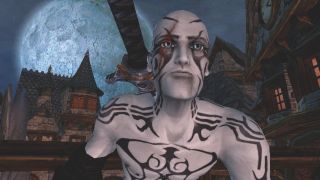
OXM: Fable was obviously an Xbox exclusive and, shortly after release, Microsoft bought out Lionhead. Why did you feel that was the right move at the time?
PM: Yeah, that was just before Microsoft took us over. And running that number of people was one of the reasons why. The studio was getting so large it felt like an entity, a size which needed a partner. When you’re external to a publisher, most independent developers live on paranoia. The mainstay of every day is paranoia – every indie company believes their publisher in some way has these Machiavellian plans that will cause disaster for the game and the studio.
As soon as we joined Microsoft, and this is not me lying to you, I have no reason to do it now, there was this relief. They are genuinely passionate about games. People like Phil Spencer, Kudo Tsunoda, they care so much about making great games. They really do. So after being an indie and having this paranoia, you come into these meetings and realise that they actually care.
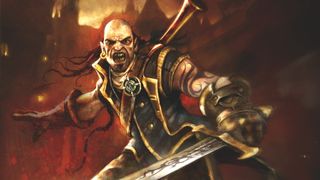
OXM: The proof is in the pudding, because Fable II was the first game Lionhead made after being acquired by Microsoft, and some would say that’s the studio’s finest moment.
PM: I’ll always love the time I spent making Black & White. But Fable II, I totally agree, it felt like the best game as a game. And in a way, to make that great game is one of the reasons that we agreed to be bought by Microsoft. Because to make Fable II, the first thing that we said to Microsoft after they acquired us was, “I’m really sorry but we are going to have to delay Fable II for a year!”
When you get acquired there’s this honeymoon period for about six months where nothing can go wrong and everyone smiles. So the first meeting I had with them I gave them three choices: you can either release Fable II now and it will be an unmitigated disaster; we can spend another year on it and make it really, really good; or we can spend another five years on it and make it the best game ever made. Obviously the middle choice was the right one.
It was great to make and it was a game where I really obsessed myself with the world. I really love that consequence thing. What was so surprising about doing Fable II was that I realised that overhearing someone talk about you in a pub is much more powerful than your wife telling you off to your face. We worked very hard, and there was Simon and Dene who actually probably worked a bit too hard – I think we all got very burned-out.
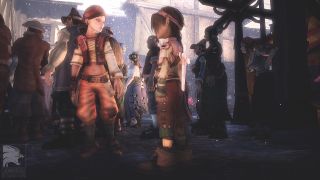
OXM: How do you feel about that side of games, the crunch times, where you’re managing a team that gives everything to make something like Fable II?
PM: That’s quite a hard question to answer. I’ve always thought about it in this way: when people work with me it’s the most amazing thing because they’re giving me a piece of their life. They’re trusting me with one year, two years, three, four, five years of their lives. And I take that very seriously. I always say to people when they come to work with me, “I don’t want you to work on something that you’ll look at at the end and think ‘hmmm, it’s a bit like this and a bit like that’. I want you to work on something that’s never existed before.”
All that craziness led to some very different ideas. I mean, why put a dog in Fable II? Because how could you not fall in love with and care about that dog? Why can’t you marry and have children in a game? Because that allows you to be evil in a different way, you can cheat on your wife and you fall into the trap!
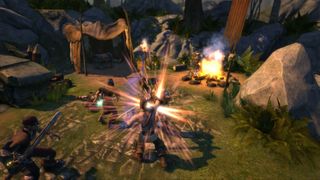
OXM: Did you have a dog when you were a boy?
PM: Yeah I did. Dogs are genetically, evolutionarily evolved to pull on our heartstrings – because if they do that then they get fed round the campfires. So that look your dog gives you at the table when you’re eating a pork chop, that’s so many thousands of years of evolution coming to that point.
I remember there used to be these times where it just felt like the dog would never work, it would never do anything right. It used to not do much, it used to get its arse stuck on tree stumps, and we always thought we would have to scrap it, and then one day there was a build where it moved smoothly, and it didn’t bark all the time, and it just felt immediately right.
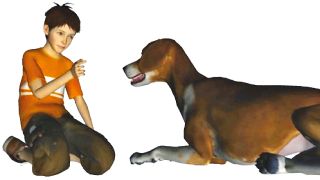
OXM: Moving on to Milo, I guess that’s something that comes from the other perspective of being a parent.
PM: Yeah at that time in my life my son was seven/eight years old and, all parents find this, when your kid is that age it’s just amazing being a parent. You can see you’re inspiring this little person that looks at you and you can feel the wonder in their eyes, and that to me just felt incredible. And when Microsoft came and said we’re doing this new device, which was way before Kinect was ever public, and they asked for my take on it – I saw the device and the way it was sold to me was that you could be in a room with lots of other people, and this device can pick you out, it knows it’s you, it will recognise your voice, gestures, finger movements, the whole shebang.
My first reaction to seeing that early tech was thinking that the last thing you’d want to do with it is make a first-person shooter. People would easily get tired of that. If Kinect really worked it would connect – sorry – players to interactive experiences we’d never imagined before.
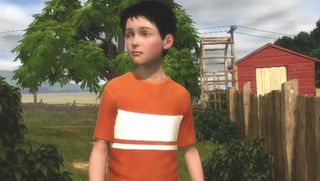
OXM: Was Milo almost complete before being cancelled?
PM: When you say ‘almost complete’ there were hours of content, but there were thousands of bugs. I could show you something today and you’d think it was complete, but I know it’s not finished. Because I’m still not happy with how you’re playing it, the routes of play that are open to you in it... Going back a bit with Milo, we started development, we were doing really exciting stuff like showing it to Steven Spielberg, but unfortunately Kinect started getting worse and worse. The field of view went down from being virtually a whole room to a narrow corridor in that room. All these changes because they realised the prototype would have cost thousands of dollars to make and in the end they needed something to sell for a hundred dollars.
At one point they were really keen on Milo, then of course they decided it... well, I wasn’t party to those meetings to be honest, but once the marketing people weren’t behind it it was very hard to get it pushed through. You know, a great shame. The tech worked and it was an amazing experience.
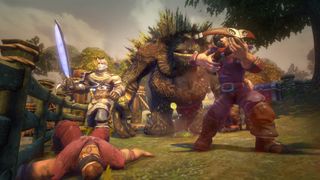
OXM: The last game you worked on at Lionhead was Fable: The Journey, how involved were you with that one?
PM: I was there when it was being developed, I helped a little bit with playthroughs. I’d agreed to come back and help a bit – I mean, the actual team did all the work, I just played it a few times and did some notes. Again, you know, it was hard to make a really visceral experience. I think The Journey worked if you had the camera set up perfectly and you were sitting just right... but who the hell wants to do that. I still think The Journey was a pretty good story.
OXM: Why do you think people identified Lionhead as an especially ‘British’ studio?
PM: I think it was the sense of humour. You know the British slightly politically incorrect sense of humour, especially with Fable, where we had prostitutes and same-sex marriage. Microsoft were appalled, you know, they were busily going around trying to rub all the nipples out of all the women just not to offend people, and things [Lionhead designer] Mark Healey would put in – if you play Black & White you notice that all the totems are completely phallic, just penises everywhere. It’s that slightly guffaw, Finbarr Saunders type of joke.
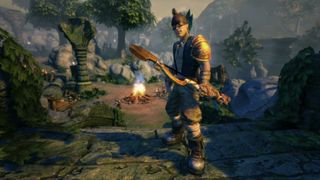
OXM: Do you think this is the end for Fable?
PM: It’s crazy that Fable IV isn’t being made. I would love to do Fable IV, and the studio tried to do it. You’d have to get the original team back together though.
OXM: My favourite Fable memory will always be OXM editor Matthew running around in Fable II, holding the fart button and following-through in front of everyone he could find.
PM: [laughs] Well that’s brilliant. It’s puerile, it’s childish, but why the hell wouldn’t you do it again and again.
This article originally appeared in Xbox: The Official Magazine. For more great Xbox coverage, you can subscribe here.
Richard is an experienced games journalist with over 15 years of experience. Currently the News Editor at PC Gamer, he has also written for Edge Magazine, Ars Technica, Eurogamer, 12DOVE, Gamespot, the Guardian, IGN, the New Statesman, Polygon, and Vice. He was also the editor of Kotaku UK once upon a time. He also wrote the Brief History of Video Games, a full history of the medium.
